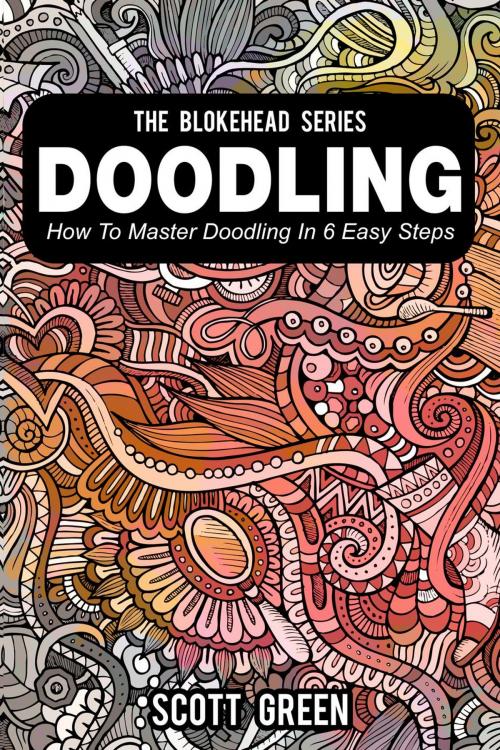Doodling : How To Master Doodling In 6 Easy Steps
The Blokehead Success Series
Nonfiction, Home & Garden, Crafts & Hobbies, Art Technique, Drawing, Art & Architecture, General Art| Author: | Scott Green | ISBN: | 9781507041260 |
| Publisher: | Yap Kee Chong | Publication: | November 17, 2014 |
| Imprint: | Language: | English |
| Author: | Scott Green |
| ISBN: | 9781507041260 |
| Publisher: | Yap Kee Chong |
| Publication: | November 17, 2014 |
| Imprint: | |
| Language: | English |
Before someone tries to learn how to doodle he or she needs to understand what doodling actually is. The word doodle comes from German, and referred to a person who was a fool, or who was simple in some way. The modern meaning of the word, referring to small drawings done idly while one thinks, came about in the 1930s and might be connected to the word dawdle for someone who's wasting time.
All of the history aside though, a doodle is nothing more than an unfocused or unconscious drawing, typically made while one's attention is supposed to be focused elsewhere. This is why doodles often show up in the margins of notebooks or on sticky notes at work; people who are tethered in place and stuck listening to a phone call, lecture, etc. will pick up a pen and begin to make small, unfocused drawings. These are doodles.
How to Doodle
There's no right or wrong way to doodle, much as there's no right or wrong way to draw in the first place. Doodlers can use the margins of a notebook or a pad of sticky note reminders just as easily as they can use a pristine white sketchbook. A doodler can use a number 2 pencil, a ballpoint pen, or really any other drawing implement that he or she desires. As long as you have a medium, it's possible to doodle.
When it comes time to start doodling it's important to let your mind wander and to focus on any creative idea it comes across. Perhaps you see a large letter A on your letterhead, and decide to draw vines encircling it like something out of an old book of Grimm's Fairy Tales. Maybe you decide to add roses to the vines, turning the A into a fully-fledged topiary. Perhaps you decide to put a castle on top of the pinnacle of the A. Maybe you draw the vines hanging down and swinging in an unseen breeze.
Before someone tries to learn how to doodle he or she needs to understand what doodling actually is. The word doodle comes from German, and referred to a person who was a fool, or who was simple in some way. The modern meaning of the word, referring to small drawings done idly while one thinks, came about in the 1930s and might be connected to the word dawdle for someone who's wasting time.
All of the history aside though, a doodle is nothing more than an unfocused or unconscious drawing, typically made while one's attention is supposed to be focused elsewhere. This is why doodles often show up in the margins of notebooks or on sticky notes at work; people who are tethered in place and stuck listening to a phone call, lecture, etc. will pick up a pen and begin to make small, unfocused drawings. These are doodles.
How to Doodle
There's no right or wrong way to doodle, much as there's no right or wrong way to draw in the first place. Doodlers can use the margins of a notebook or a pad of sticky note reminders just as easily as they can use a pristine white sketchbook. A doodler can use a number 2 pencil, a ballpoint pen, or really any other drawing implement that he or she desires. As long as you have a medium, it's possible to doodle.
When it comes time to start doodling it's important to let your mind wander and to focus on any creative idea it comes across. Perhaps you see a large letter A on your letterhead, and decide to draw vines encircling it like something out of an old book of Grimm's Fairy Tales. Maybe you decide to add roses to the vines, turning the A into a fully-fledged topiary. Perhaps you decide to put a castle on top of the pinnacle of the A. Maybe you draw the vines hanging down and swinging in an unseen breeze.















